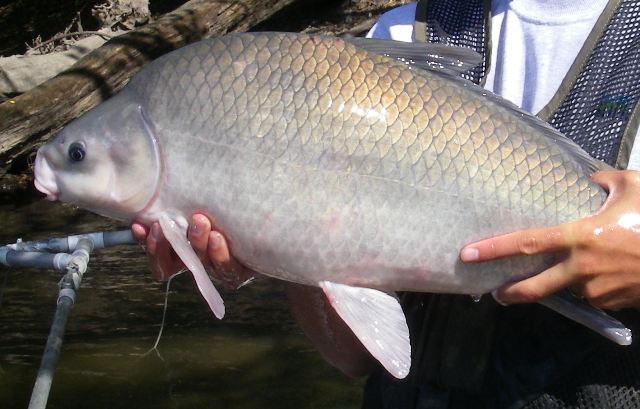Smallmouth Buffalo
(Ictiobus bubalus)

The smallmouth buffalo prefers areas with swifter current than the black or bigmouth buffalo.
Description
The smallmouth buffalo has a small sub-terminal (ending below tip of snout) mouth which helps separate them from the bigmouth buffalo which has a large terminal (ending at tip of snout) mouth. They have a larger eye than the black buffalo and are deeper bodied than either of the other two Ohio buffalo species. They are typically a dark gray or bronze-gray, sometimes with a slight bluish overcast, and are usually the lightest colored of the three species of buffalo found in Ohio. All species of buffalo have a long continuous dorsal fin and no spines in any of their fins. Buffalo look similar to common carp but are not closely related.
Habitat and Habits
Smallmouth buffalo are found in large rivers in both the Lake Erie and Ohio River drainage systems. They are typically found in deep fast chutes below shallow riffles and prefer clearer waters than the bigmouth buffalo. Smallmouth buffalo rarely occur in lakes or the backwaters and bays of Lake Erie.
Reproduction and Care of the Young
Spawning takes place in the April and May when they congregate in areas of moderate flow in shallow water. Eggs are scattered over weeds and gravel bottoms and hatch in one to two weeks. No parental care is given by the adults.